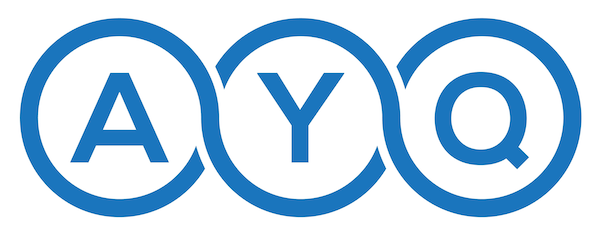Are you prepared for the future job market? As we enter a new era of industrial revolution, the skills required to thrive in the workplace are rapidly changing. Employers are seeking individuals with a unique set of skills that combine technical expertise with soft skills. In this article, we will explore the skills that will be in high demand in the next decade and how they will shape the job market.
Digital Literacy
Digital literacy skills are essential for success in today’s digital world. In order to thrive in the modern workplace, it is crucial to possess a strong foundation in technology skills and be proficient in using various digital tools.
With the rapid advancement of technology, having digital literacy skills has become a prerequisite for many job roles. Employers value individuals who are capable of confidently navigating devices, software, and apps, as well as effectively utilizing digital tools to communicate and collaborate.
By honing your digital literacy skills, you can stay up to date with the latest technologies and adapt to the ever-changing digital landscape. This not only enhances your productivity but also positions you as a valuable asset in the job market.
Whether it’s managing your emails, creating digital presentations, or conducting research online, having a deep understanding of digital literacy empowers you to harness the potential of technology to your advantage.
Benefits of Digital Literacy Skills
Developing strong digital literacy skills offers a wide range of benefits in both personal and professional realms. Here are a few key advantages:
| Benefits of Digital Literacy Skills | Description |
|---|---|
| Enhanced Communication | Digital literacy skills enable you to effectively communicate and collaborate with others using various digital tools. |
| Increased Efficiency | Proficiency in digital tools allows you to streamline tasks, automate processes, and work more efficiently. |
| Access to Information | With digital literacy skills, you can leverage technology to access and utilize vast amounts of information and resources. |
| Career Advancement | Employers highly value digital literacy skills, and possessing these skills can open doors to new career opportunities. |
| Lifelong Learning | Digital literacy skills empower you to embrace lifelong learning and keep up with evolving technologies. |
Having a solid foundation in digital literacy is an investment in your future. It equips you with the necessary skills to thrive in the digital era, ensuring that you remain competitive in today’s job market.
Enhance your digital literacy skills and unlock new opportunities in the digital world.
Data Literacy
In the age of data-driven decision making, data literacy skills have become highly sought after by employers. Data literacy encompasses a range of abilities that enable individuals to effectively access, analyze, interpret, and communicate data-based insights. Possessing strong data literacy skills empowers professionals to extract meaningful information from vast amounts of data and use it to drive informed business decisions.
An individual with data literacy skills is proficient in:
- Understanding and navigating data sets
- Performing data analysis and visualization
- Interpreting data to identify trends, patterns, and correlations
- Applying statistical methods to draw meaningful insights
- Effectively communicating data-driven findings to stakeholders
Data literacy skills are particularly valuable in roles that involve data analysis, market research, or strategic planning. As organizations increasingly rely on data to inform their strategies, professionals who possess data literacy skills have a competitive advantage in the job market.
Employers recognize the importance of data literacy and often seek candidates who can demonstrate these skills. According to a survey conducted by IBM, 72% of employers believe that data analysis skills are more important for success than the degree field in which an individual graduated.
The integration of data literacy skills allows organizations to unlock the full potential of the data they possess, leading to more precise decision making and operational efficiency. By leveraging data analysis, businesses can identify trends, uncover opportunities, and mitigate risks.
Benefits of Data Literacy
An investment in data literacy skills offers organizations several distinct advantages:
- Improved decision making: By understanding how to interpret and analyze data, individuals can make data-driven decisions with increased accuracy and confidence.
- Enhanced problem-solving: Data literacy skills enable professionals to approach complex problems and find innovative solutions by leveraging insights gained from data analysis.
- Greater productivity: Efficient data analysis allows companies to save time by automating processes, reducing manual effort, and focusing resources on high-value activities.
- Identification of growth opportunities: Data literacy skills enable individuals to identify emerging trends, customer preferences, and market opportunities, helping businesses capitalize on new growth prospects.
Overall, data literacy skills play a crucial role in unlocking the potential of data and transforming it into actionable insights. In the next decade, professionals who possess data literacy skills will be in high demand as organizations increasingly rely on data-based decision making.
Critical Thinking
With the abundance of information and the rise of fake news, critical thinking skills are crucial for success in the next decade. In a world where it’s becoming increasingly difficult to separate fact from fiction, individuals with strong critical thinking abilities have a distinct advantage. So, what exactly is critical thinking and why is it so important?
Critical thinking involves the ability to objectively analyze issues and situations, examining them from multiple perspectives and assessing the validity of information. It goes beyond personal opinions and biases, relying on evidence and logical reasoning to make informed decisions. By carefully evaluating the evidence at hand, critical thinkers can navigate complex problems and arrive at sound judgments.
The value of critical thinking extends beyond individual decision making. Employers recognize the importance of critical thinking skills in their workforce, as they seek employees who can analyze and solve problems, adapt to change, and drive innovation. In fact, according to a study by the World Economic Forum, critical thinking is one of the top skills employers will prioritize in the next decade.
The ability to think critically enables individuals to:
- Analyze complex issues and identify underlying problems
- Question assumptions and challenge existing ideas
- Evaluate evidence and assess the credibility of sources
- Make well-informed decisions based on evidence
- Consider multiple perspectives and viewpoints
The Benefits of Critical Thinking
Critical thinking skills have numerous benefits, both in personal and professional contexts. Let’s take a closer look at some of these benefits:
| Benefits of Critical Thinking | Description |
|---|---|
| Improved problem-solving | Critical thinkers are adept at identifying root causes, evaluating alternative solutions, and making logical decisions. |
| Enhanced decision-making | By considering evidence and multiple perspectives, critical thinkers can make well-informed decisions, minimizing the impact of biases or emotions. |
| Effective communication | When presenting ideas or engaging in discussions, critical thinkers can articulate their thoughts clearly and logically, improving their communication skills. |
| Increased creativity | Critical thinkers are more likely to think outside the box, generating innovative ideas and approaches to problem-solving. |
| Stronger analytical skills | Critical thinking involves careful analysis and evaluation of information, leading to improved analytical abilities. |
Developing Critical Thinking Skills
While critical thinking skills may come naturally to some, they can also be developed and honed through practice and conscious effort. Here are a few strategies to help improve your critical thinking abilities:
- Ask questions: Challenge assumptions, seek evidence, and evaluate the credibility of sources.
- Consider different perspectives: Examine issues from multiple angles and be open to viewpoints that differ from your own.
- Seek out diverse information: Explore a variety of sources to gather a comprehensive understanding of a topic.
- Engage in reflective thinking: Take the time to reflect on your own thought processes, biases, and decision-making methods.
- Practice problem-solving: Tackle complex problems and practice analyzing and evaluating potential solutions.

Mastering critical thinking skills is essential not only for personal success but also for navigating the challenges and opportunities of the rapidly evolving professional landscape. By cultivating your ability to analyze issues objectively, question assumptions, and make evidence-based decisions, you can position yourself as a valuable asset in the next decade and beyond.
Emotional Intelligence
Emotional intelligence is a highly valued skill in the workplace. It encompasses empathy and self-awareness, allowing individuals to understand and manage their own emotions as well as the emotions of others. Employees with high emotional intelligence are adept at effectively communicating and building strong relationships, benefiting both themselves and their colleagues. Employers recognize the importance of emotional intelligence in fostering a positive and productive work environment.
Importance of Emotional Intelligence in the Workplace
Emotional intelligence plays a crucial role in various aspects of the workplace. Here are some key reasons why it’s essential:
| Benefits of Emotional Intelligence |
|---|
| Enhanced communication |
| Improved teamwork and collaboration |
| Conflict resolution |
| Increased empathy and understanding |
| Effective leadership |
| Positive work environment |
By fostering emotional intelligence among employees, organizations can create a supportive and harmonious workplace culture that promotes productivity, innovation, and overall job satisfaction.
Creativity
In the future workplace, creativity will be one of the most desirable skills. With routine tasks being automated, creative thinking becomes increasingly important. Employers will value individuals who can come up with new ideas, think outside the box, and solve problems in innovative ways. Creativity is essential for driving growth, adapting to change, and staying ahead of the competition.
The Benefits of Creativity in the Workplace:
| Benefits | Description |
|---|---|
| Problem-solving | Creative thinkers are able to approach problems from different angles and find unique solutions. |
| Innovation | Creativity drives innovation in the workplace, leading to the development of new products and services. |
| Adaptability | Creative individuals are more adaptable and open to change, allowing them to thrive in dynamic environments. |
| Competitive Advantage | Companies that foster a culture of creativity have a competitive advantage in the market. |
Collaboration
In today’s modern workplace, collaboration and teamwork have taken on a new form as organizations embrace hybrid workers, remote workers, and contractors. As we move into the next decade, employers will highly value employees with strong collaboration skills, as it is crucial for achieving success in a team-oriented environment.
Effective communication is at the heart of collaboration, enabling team members to share ideas, knowledge, and insights. Employees who can communicate clearly and concisely, actively listen to others, and adapt their communication style to different team members will excel in collaborative settings. Being able to express thoughts and opinions, ask questions, and give constructive feedback contributes to the overall effectiveness of a team.
Collaboration skills also involve the ability to work harmoniously with diverse teams and colleagues. Embracing and respecting individual differences, cultural backgrounds, and perspectives can foster innovation and creativity within a team. By valuing and leveraging the unique strengths of each team member, collaborations become more fruitful, with a broader range of perspectives contributing to problem-solving and decision-making.
Successful collaboration requires more than just working together towards a common goal. It involves actively participating, engaging in open and honest discussions, and supporting one another. Building trust and establishing strong relationships among team members enhances collaboration and creates an environment where everyone feels empowered to contribute their best ideas and skills. Effective collaboration skills will be highly sought after by employers in the next decade, as they recognize the importance of teams that can collaborate, communicate, and achieve common goals.

